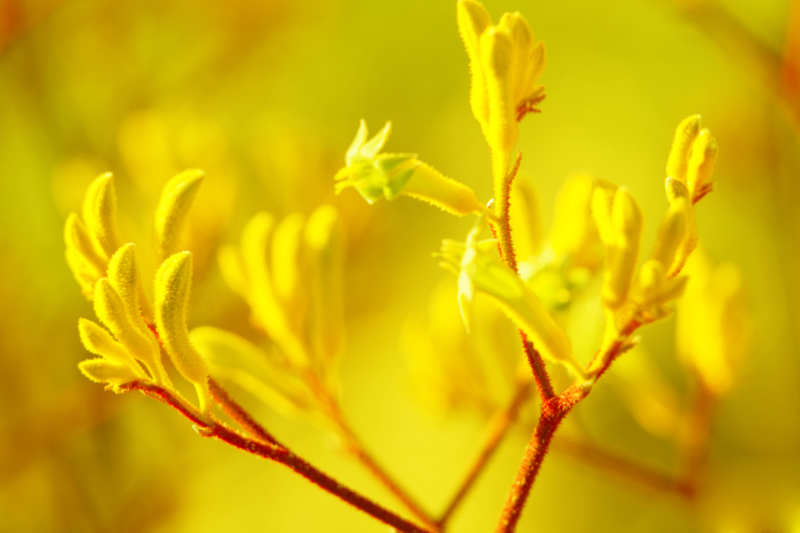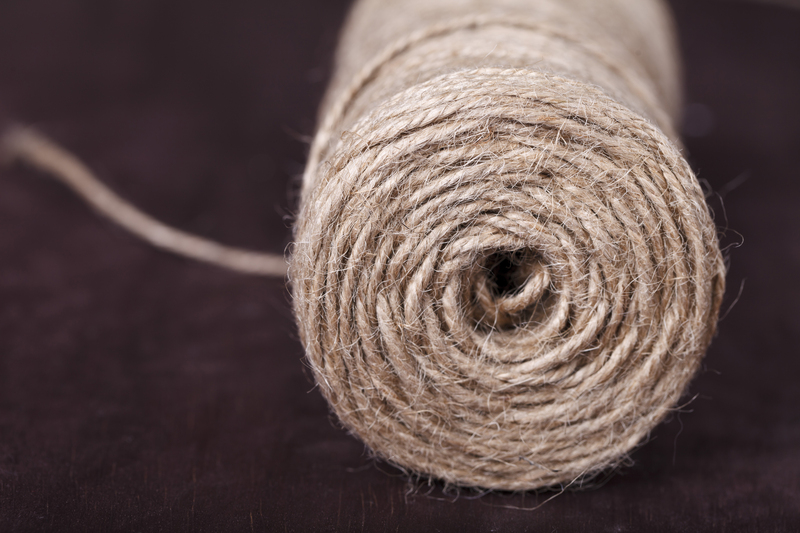3 Must-Know Tips for Effective Weed Management
Posted on 01/06/2025
3 Must-Know Tips for Effective Weed Management
Weed management is a crucial component in maintaining the health and productivity of gardens, lawns, agricultural fields, and landscapes of all sizes. Whether you are an avid home gardener, a lawn care enthusiast, or a professional farmer, weeds can quickly become your most persistent and challenging adversaries. Effective weed control goes beyond just pulling out unwanted plants--it requires an understanding of weed biology, strategic planning, and the judicious use of resources.
This comprehensive article explores three must-know tips for effective weed management to help you foster robust plant growth, minimize competition, and reduce long-term maintenance costs.
Understanding Weeds: The Basics
Before diving into weed management strategies, it's important to understand what weeds are, how they invade your growing spaces, and why controlling them requires an integrated approach.
- Weeds are simply plants growing where they are not wanted. Common examples include crabgrass, dandelion, purslane, and bindweed.
- Weed seeds are often highly resilient, remaining viable in the soil for years and germinating under favorable conditions.
- Some weeds spread aggressively through rhizomes or roots, making them difficult to eradicate completely.
- Weeds compete with crops and ornamentals for light, water, and nutrients, often leading to reduced yields and lower-quality landscapes.
With this in mind, let's explore the essential weed management strategies every grower should know.

Tip 1: Practice Preventative Weed Management
The most effective weed control always starts with prevention. Instead of continually reacting to weed outbreaks, establish proactive strategies to minimize the opportunity for weeds to invade.
How to Prevent Weeds from Invading
- Mulch Regularly: Cover all exposed soil with organic or inorganic mulch. Mulch acts as a barrier, reducing light penetration and making it difficult for weed seeds to germinate. Common mulching materials include chopped leaves, straw, wood chips, and commercial weed fabrics.
- Choose Quality Seeds and Plants: Always use certified, weed-free seeds and transplants. Weedy contaminants in seed packets are a major source of new invasions.
- Maintain Healthy Plant Density: Dense plantings create a natural ground cover and shade, limiting the space available for weeds to establish.
- Compost Carefully: Never compost weeds that have gone to seed or persistent root fragments, as they can survive and spread when the compost is applied back to beds.
- Install Physical Barriers: For gardens and flower beds, use landscape edging or physical barriers to keep creeping weeds like Bermuda grass at bay.
Remember: Prevention is always easier, less time-consuming, and more cost-effective than battling established weeds.
Tip 2: Implement Integrated Weed Control Methods
No single weed management strategy is effective for all situations. The key to long-term success is using a combination of cultural, mechanical, biological, and chemical approaches--a principle known as Integrated Weed Management (IWM).
Cultural Weed Control Techniques
- Crop Rotation: Altering crop species from season to season disrupts weed life cycles and reduces the buildup of specific weed populations.
- Use Cover Crops: Fast-growing cover crops like rye, clover, or buckwheat outcompete weeds and provide additional organic matter.
- Adjust Irrigation: Water only where and when needed. Drip irrigation, for instance, delivers water directly to plant roots, reducing moisture available for weeds.
Mechanical Weed Control Methods
- Regular Hand Weeding: Pull weeds early, especially before they flower and set seed. It is easier and more effective than tackling mature plants.
- Cultivation and Hoeing: Shallow cultivation disrupts emerging weeds, but avoid deep tillage that may bring buried weed seeds to the surface.
- Mowing: Keep lawn grass at the recommended height to shade the soil and prevent weed seed germination.
Biological Weed Control
- Introduce Beneficial Organisms: Certain insects, fungi, or grazing animals can help control specific weed species without harming desired plants.
Chemical Weed Control: Use Responsibly
- Selective Herbicides: For some persistent weeds, carefully chosen herbicides may be necessary. Always follow label instructions, use the correct rates, and apply at the proper growth stage for maximum efficacy and minimal environmental impact.
- Spot Treatment: Apply herbicides only where needed rather than blanket spraying, to reduce chemical use and protect other plants and beneficial organisms.
Tip 3: Monitor, Record, and Respond Proactively
Effective weed management is an ongoing process. Diligently monitoring your property, documenting infestations, and adjusting strategies can help you stay ahead of potential outbreaks.
Regular Monitoring: The Eyes on the Ground
- Scout for Weeds Frequently: Walk through your fields, gardens, or lawns on a routine basis to spot and address problems in early stages.
- Identify Weeds Accurately: Proper identification helps you understand growth habits, reproductive cycles, and vulnerabilities of different weed species.
- Watch for "Hotspots": Pay attention to areas near fences, irrigation lines, pathways, and field edges where weeds often get a foothold.
Keep Records and Evaluate
- Document Your Actions: Keep a logbook of control measures (dates, methods, locations) and weed species noticed.
- Track Results: Evaluate whether strategies are working and adjust your approach as needed.
Adapt and Respond
- Timely Response: Address emerging weed problems as soon as possible to prevent spread and reduce future management needs.
- Review and Revise: Every season, review your successes and challenges--and be flexible enough to refine your weed control plan.
Common Mistakes to Avoid in Weed Management
While implementing these three essential tips for weed management, it's also crucial to avoid common mistakes that can set back your progress:
- Ignoring small weeds: Even the tiniest plants can produce thousands of seeds and quickly become a major problem.
- Letting weeds go to seed: One weed can create a population explosion for years to come.
- Using too many chemicals: Over-reliance on herbicides can harm soil health, desirable plants, and the environment while encouraging herbicide resistance in weed populations.
- Ineffective mulching: Using too thin a layer or poor-quality mulch may actually help weeds thrive.
- Neglecting borders and perimeter areas: These zones often serve as seedbanks for future infestations.
The Benefits of Proactive Weed Management
Actively managing weeds isn't just about aesthetics; it brings a host of tangible benefits:
- Improved Crop Yields and Garden Health: Plants grow better when they don't have to compete for vital resources.
- Reduced Pest and Disease Pressure: Many weeds harbor insects and pathogens that can spread to your desired plants.
- Enhanced Soil Quality: Less disturbance, fewer chemicals, and more organic matter promote soil vitality.
- Lower Maintenance Labor and Costs: An ounce of prevention is worth a pound of cure!
- Greater Environmental Stewardship: Well-managed landscapes reduce the spread of invasive weeds into natural habitats.

Conclusion: Take Charge of Weed Management Today
In summary, effective weed management relies on a mixture of prevention, integration, and vigilance. Remember these three must-know tips for effective weed management:
- Start with prevention by blocking weeds from getting a foothold in the first place.
- Use a combination of cultural, mechanical, biological, and chemical weed control methods for best results.
- Monitor regularly, record your efforts, and adapt your strategies to address problems early.
Weed management is a journey, not a one-time effort. With patience, persistence, and the right knowledge, you can achieve a thriving, weed-free landscape--no matter the scale of your growing space.
Want more gardening and lawn care tips? Bookmark this page for ongoing advice, seasonal reminders, and expert guides on all aspects of plant health and landscape maintenance!
Frequently Asked Questions (FAQs) about Weed Management
What is the best time to control weeds?
The most effective weed control happens before weeds can establish or go to seed. Early spring and fall, when weeds are young and actively growing, are ideal times for both physical and chemical control strategies.
Are organic weed control methods effective?
Yes! Organic weed management techniques like mulching, crop rotation, and manual weeding are highly effective when used consistently. They are environmentally friendly and help build soil fertility.
When should I use herbicides?
Use herbicides as a last resort and only if cultural and mechanical methods haven't succeeded. Always follow guidelines for safe, targeted application to minimize risks to pollinators, pets, and nearby water sources.
Can weeds ever be completely eliminated?
It is nearly impossible to eliminate all weeds permanently, but consistent, integrated control can greatly reduce their impact and keep them at manageable levels.
Take action now and enjoy the rewards of a healthier, more beautiful, and productive environment free from the stranglehold of weeds!
Latest Posts
Creating Gardens with Heart: Perfecting the Seating
Achieve Garden Elegance with Creative Hedge Techniques
Envelop Your UK Garden in Charm with 9 Ground Cover Plants

